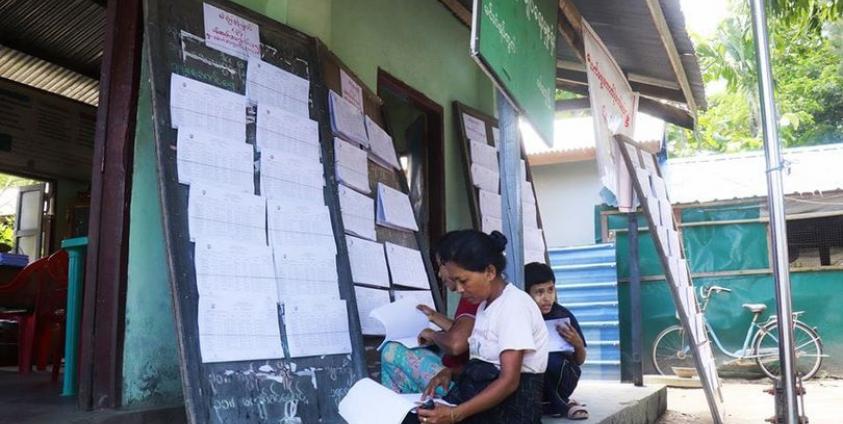The junta-appointed Arakan State election body has been checking voter lists against the population on the ground in townships across the state as Myanmar’s military regime plans to hold a redo general election next year.
“We have been checking since March 10 and will be checking until May,” said U Thurein Htut, secretary of the Arakan State election subcommission.
“From this, we can identify the dead, those who have moved to new addresses, and those who do not have national registration cards [NRCs],” he told DMG. “Some people voted in the 2020 general election without NRCs. And the immigration department will issue NRCs for them [if eligible].”
At a March 11 event in Sittwe officially launching the voter list scrutinisation pilot scheme, junta-appointed Arakan State Chief Minister Dr. Aung Kyaw Min called for checking the voter lists against the population records of respective township General Administration Departments to ensure comprehensive and correct voter rolls.
The state election body is cross-referencing population data for voter list accuracy because there were voter list errors in 2020 voting under the previous government, Arakan State military council spokesman U Hla Thein told DMG.
“The preliminary lists based on the immigration department and General Administration Department will be sent to the election commission,” said U Hla Thein, who is also the state’s advocate general.
“The commission will update the lists, go down to the field, and check its lists against the population on the ground in the respective villages, wards, townships and districts,” he added. “In principle, those without NRCs are not allowed to cast a vote, and we are therefore issuing NRCs.”
In the 2020 general election, the Arakan National Party (ANP) won the most seats in Arakan State, while the National League for Democracy (NLD) secured a decisive majority at the national level. However, the military overthrew the civilian government led by Daw Aung San Suu Kyi on February 1, 2021, citing electoral fraud. The international community has largely rejected those claims, as has much of the Myanmar public.







